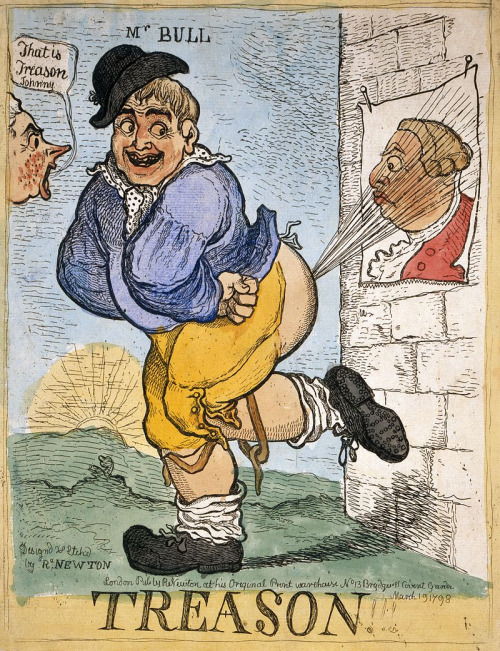Vulgarity, too, is in the eye of the beholder. Oscar Wilde acknowledged as much when he remarked: “Vulgar behavior is the behavior of other people.”
Wilde’s admonition is worth keeping in mind—a mortification-in-waiting. As we have been told, God resisteth the proud, and giveth grace to the humble. But while we keep an obliging eye out for our own vulgarities, it would be a shame to overlook everyone else’s. So stay with me a bit.
• • • •
When the temperature hits 90° I am ready to curse the heat myself. So why did I wince when I overheard another woman do it?

We passed each, she and I, on the sidewalk Saturday afternoon. She was in shorts, T-shirt, and a long-peaked visor cap. Not a baseball cap; rather, it was the kind that goes comfortably with a Land Rover SUV and a Bulgari watch. It is a hot weather uniform that only the well-off can sport without looking unkempt.
She was just out the door of the local gourmet shop and already on the phone, fortissimo: “It’s so-o-o hot! I’m sweating my little boo-boobies off!”
Truth be told, this woman had a lot more sweating to do to warrant the descriptive little. But that was not the issue. What jarred me was the pointlessness of the vulgarism. Useless expenditure. A throw-away indelicacy. If coarseness is to serve a purpose—as it can—it needs the right setting, the proper target.
Like this:

Or this:
Her crudity was misplaced. It was directed at her own body instead of at the effing heat. Boobs is ungainly, an ugly-sounding word tinctured with hostility. Why would any woman use it, let alone apply it to herself? Moreover, it robs us of boob, that handy, classic epithet for bone-headed nitwits. And it spoils the flavor of Mencken’s delicious booboisie, (There are other reasons, too, but this one comes to mind most easily.) A good indecency should be carefully crafted, accurately placed, never aimless.

• • • •
A priggishness commands the printed word. Yes, we expect serious people to omit profanity from their own prose (except, perhaps, for calculated effect in rare instances). But something quite different is at work when journalists are obliged to ditch the spelling of certain words quoted from another speaker. It is as if the simple sight of a blue word were a contaminant.
Australian linguist Ruth Wajnryb foraged among verbal taboos as they affected printed texts. She collected such tidbits as the newspaper transcript from the cockpit voice recorder of a plane that had crashed in Iowa in 1989: “We’re going to have to ditch this son of a [word deleted].” If ever a time for swear words was in order, this was it. But no. Not even imminent disaster or death could ward off the red pencil.
Wajnryb’s work was a storehouse of notes on lexicographic squeamishness:
In 1948, one Burges Johnson succeeded in writing a book on swearing, rather romantically titled The Lost Art of Profanity, without once mentioning any of the four-letter words. And Jesse Sheidlower wrote a famous book called The F-Word, but such an endeavour can’t have been easy.
All those risible contortions—the n-word; the f-word, the l-word, the c-word, the gamut of words that dare not speak their own g*d*%#@ name! Bad enough the earnest bow to Comstock’s ghost, but in addition we are obliged to shield one another’s eyes from seeing all the letters spelled on the page: F*&k, S#@t, A**%#$e. What makes this faux-delicacy comical is that our mind’s ear hears the censored epithet anyway. And the eye knows precisely how to decode the ruse.
• • • •
“Out, crimson spot! Out I say.” Not as emphatic as Lady Macbeth’s original adjective, crimson is likely more amenable than damned to the librarian who scanned my card at the checkout desk Friday morning. She looked into her computer screen, frowned, and said, “You have one book overdue: Cancel Your Own . . . .” Her voice trailed off, eyes fixed on the screen. The lapse into silence signaled a call for rescue.
“Oh, yes,” I offered. “The Bill Buckley book! Cancel Your Own Goddam Subscription. Thank you for reminding me. I’ll drop it ‘round tomorrow.”
She looked up, smiled, and handed back my card. She seemed grateful to have been spared the burden of saying the full title out loud.

Would William F. Buckley ever find a publisher in these tender times? Buckley did not suffer fools. Neither did he give a fig for the easily bruised Princess and the offending Pea. Confident in the decency of his own standpoint, he unbuttoned his prose and sent it into the ring in a loin cloth.
It is a vanishing art, Buckley’s kind of wicked, elegant wrestling defense of a position. Everyone strains to pass as a princess these days. No matter how squalid, dishonest, or dangerous the words or behavior of the Better Sort—secular or ecclesial—punches must be pulled, hems kept from the dust of the arena.
We have become so fine-grained, we readers of quality. Our sensibilities grow fragile. Febrile. Feelings readily vexed are the day’s hallmark of discernment. We are brittle, injured by utterances not powdered and featherbedded to suit maiden aunts at tea with the vicar. We insist on refined locutions, gluten free and decaffeinated. If truth must be delivered, well then, please, no fizz. Seltzer gone flat is the only acceptable spirit.

[To be continued]



